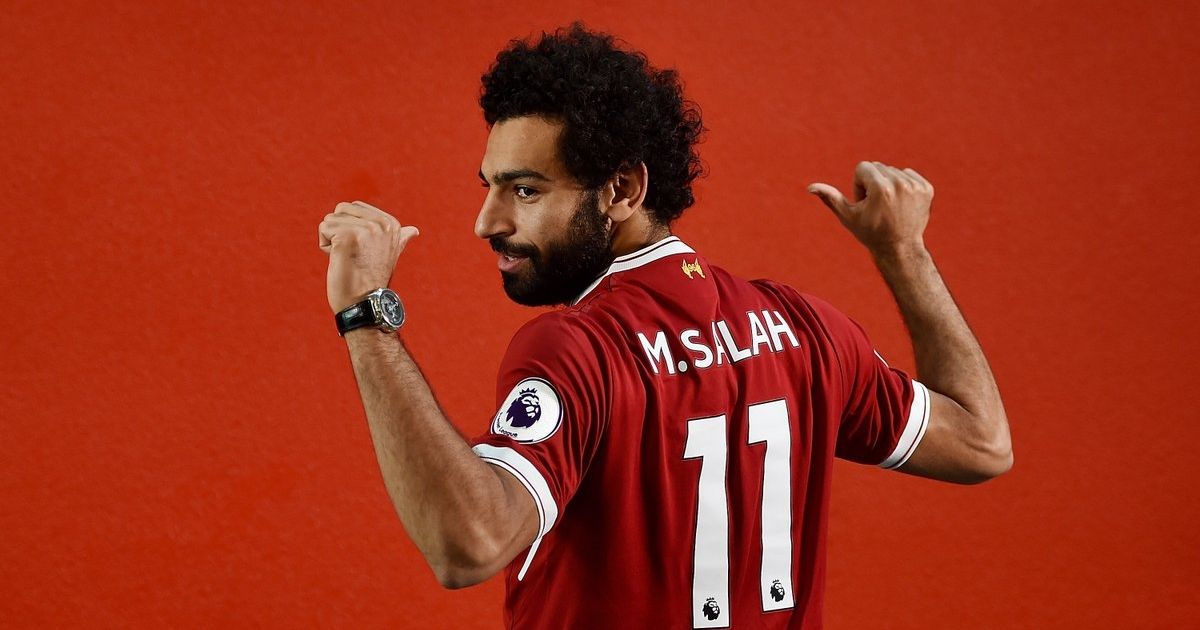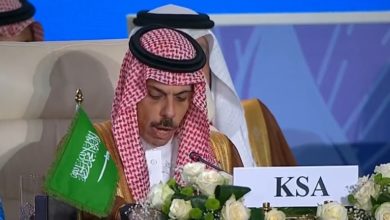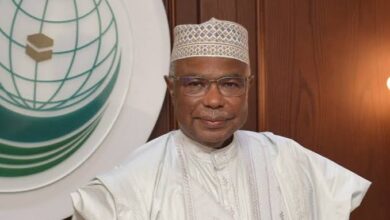

The Washington Post – Afshin MolaviJune
Afshin Molavi is a senior fellow at the Foreign Policy Institute of the Johns Hopkins University School of Advanced International Studies in Washington, D.C.
“Bismillah-ir-Rahman-ir-Raheem,” the television announcer intoned as the soccer player with shaggy hair stood, poised for a penalty kick, with a minute to go in the match. The packed stadium near the Egyptian city of Alexandria hummed with nervous energy. Television sets flickered across the land, all eyes on this moment, this kick.
“Bismillah-ir-Rahman-ir-Raheem,” the announcer said again, invoking the words familiar to Muslims everywhere: In the Name of God, the Most Beneficent, the Most Merciful. If ever a penalty kick deserved divine intervention, this was it. The fate of Egypt’s World Cup future lay with that young man, Mohamed Salah, facing off against the Congolese goalkeeper.
Salah was no stranger to pressure. At the time, he played in the most-watched league in the history of the sport — Britain’s Premier League — and he was already displaying the greatness that led to a record-breaking season for Liverpool, one of British football’s most storied franchises. Success in Britain had made Salah tens of millions of dollars and made him a hero on two continents, but success on the national team, as everyone knows, will make you something else: A legend.
“Ya rab, ya rab” the announcer said, “Oh God, Oh God” as the 25-year-ols striker began his jog toward the ball. He then just repeated the name of the player: “Mohamed Salah, Mohamed Salah, Mohamed Salah.” Like a chant.
Then, in a matter of seconds, it was over. Salah did what he does best: he stepped forward, moved toward the ball, and blasted a left-footer deep into the net. A legend was born. A nation exhaled, and Egypt would go to the World Cup for the first time in 28 years — before Salah was even born.
Egypt has seen its share of tumult over the last few years — an uprising that captivated the world, chaotic elections, violence in the streets, a military coup, and a country slowly creeping into military autocracy. Salah’s goal provided Egyptians a moment of sheer, unadulterated joy.
Afterward, Salah went back to Liverpool and compounded that joy with one of the most glorious breakout seasons of any international star in the modern game — to the delight of his fans back home in Egypt, where he has entered a new stratosphere. “I have never seen anything like the Salah phenomenon,” Egyptian columnist Mohamed El-Menshawy told me. “This is the first time in modern history we have seen such a figure emerge, a unifying force for all Egyptians.” The only figure that comes close, El-Menshawy said, might be the legendary Egyptian actor Omar Sharif.
In late April, Salah entered legendary status in Britain, scoring 32 goals to break the English Premier League’s single-season scoring record. In doing so, he edged out soccer royalty, Cristiano Ronaldo, who scored 31 goals during the 2007-2008 season for Manchester United. Imagine a moderately well-known basketball player breaking the single-season records of Michael Jordan or LeBron James and you get the picture of Salah’s meteoric rise. Blackburn’s Alan Shearer (1995-96) and Liverpool’s Luis Suarez (2013-14) had also shared the previous mark.
Liverpool fans dubbed Salah “the King of Egypt” and created new chants for Salah, including one that declared “If he scores another a few, I will become a Muslim too.” In post-Brexit Britain, torn by contentious immigration debates, here was an Egyptian, an observant Muslim who prostrated himself after goals, embraced by the Liverpool faithful in the global religion known worldwide as football, bridging cultural gaps while lighting up scoreboards.
Back home in Egypt, Salah had become more prolific at charitable giving than scoring goals, donating extensively to his small hometown. He is a social-media star as well, but he uses Twitter and Instagram respectfully and sparingly. When an Egyptian columnist suggested that Salah should cut his beard lest he be seen as too close to the Islamists, Egyptian Twitter exploded, telling the columnist to back off. Lesson learned: you don’t mess with Mo Salah.
Then, just as quickly as the Mo Salah story exploded onto the scene, tragedy struck on May 28 when a hard tackle by an opposing player in a European league championship, sent Salah sprawling to the ground, his shoulder dislocated. “It was like 9/11 in Egypt,” Menshawy told me. “People were crying, the whole nation was praying.”
For the man who once put the team and the nation on his shoulders, the subject of Salah’s shoulder has become a daily obsession. Early reports indicate he should be ready to go by Egypt’s second Group A game at the World Cup, when it will face host Russia on June 19. But hints are emergingthat he may suit up for Egypt’s opening match against Uruguay on June 15.
He is already making noise in Grozny, the capital of the Chechnya, where the Egyptian national team is training. Chechen strongman Ramzan Kadyrov, accused by human-rights organizations of a wide range of abuses, basked in the glow of Salah by driving to his hotel personally to retrieve the star, who had not yet joined his teammates, and entered the arena triumphantly with Salah at his side to cheering crowds.
The Egyptian scholar Samuel Tadros, like so many Egyptians, is hoping to see cheering crowds for Salah in a real match, not just a practice. This is not just about soccer, he points out. “We do not produce figures like Umm Kulthum or Naguib Mahfouz anymore,” referring to the renowned female singer and the Nobel Prize-winning novelist. “People come from all over the world to see our ancient civilization,” Tadros told me, “but our modern successes are few. Salah fills that gap in a big way.”
The poet and writer Hanif Abdurraqib put it best in an insightful profile of the player at Bleacher Report, when he said “Mohamed Salah is a player who offeirs several glimpses into many places at once. To be honest, he is not aiming to unify the world but to shrink it. So that everyone has a small place to sing and bow in praise. Not to him but beside him.”
So, when Salah takes the field in Russia, we will not just be watching a supremely gifted striker, but a national symbol, putting a battered nation on his battered shoulders once again, and a player that has become a unifying global force in an increasingly fractured world.




